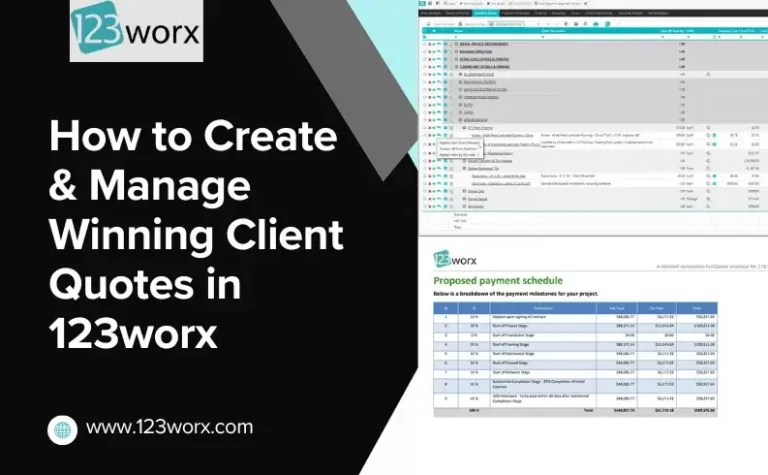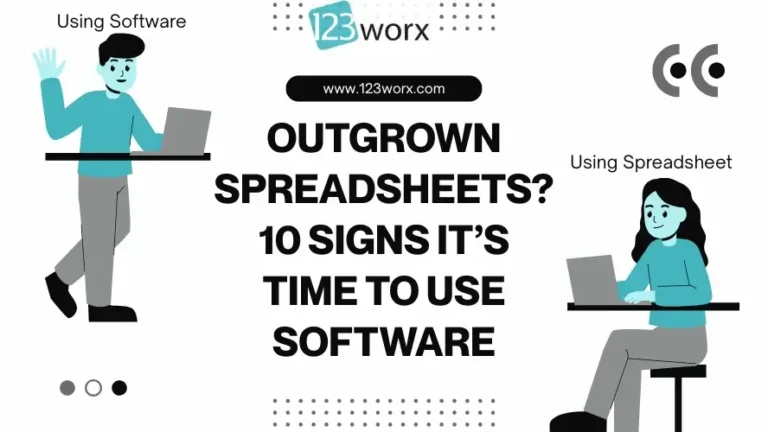Why Small Builders Need Budget-Friendly Construction CRM Software
For small contractors competing in the construction market, every lead, project, and customer relationship holds significance. Large contractors experience unmanageable installation expenses for their bloated and costly systems. Small to medium-sized firms struggle to efficiently process customer data, follow-up work, and communications.
That’s where a Construction Customer Relationship Management (CRM) system can shine. The right kind of Construction CRM software allows contractors to keep track of prospects, take on new projects, follow the sales funnel, and improve collaboration, without the software bloat or the prohibitive cost of enterprise software.
According to the NAHB construction technology report, small contractors benefit the most from affordable digital tools.
In this blog, we will uncover the top 5 budget-friendly construction CRM software perfect for small builders. Our list considers price, user-friendliness, construction-specific features, and adaptability in integration.
Who This CRM Blog Is For
This guide is specifically helpful for:
- Small construction companies (1–20 workers)
- custom home builders and remodelers
- Subcontractors and small GC firms
- Builders moving away from spreadsheets or manual follow-ups
- Contractors needing an affordable CRM to track leads, estimates, and client communication
- Small teams that want an all-in-one system without enterprise software costs
If your goal is to streamline leads, improve follow-ups, automate proposals, and centralize communication, the CRMs listed below offer the strongest value for small contractors in 2025.
Here’s a quick list of the most affordable construction CRM software among contractors in 2025: 123worx, JobTread, Contractor Foreman, Buildertrend, and Houzz Pro. These CRMs enable the smallest contractors to process leads, make follow-ups easier, centralise communication, and close more deals without the cost of enterprise software. Engineered for modern jobsite efficiency and scale, they’re ideal for builders looking to grow the business without breaking the bank.
Quick List: Most Affordable Construction CRMs for Small Contractors
- 123worx
- JobT
- Contractor Foreman
- Buildert
- Houzz Pro
How We Assessed the Above-mentioned CRMs
In ranking the top affordable CRM solutions for small construction businesses, each of the software programs was judged on:
- Pricing Transparency and Affordability
- Construction-specific CRM functionality
- Ease of use for field and office teams
- Automation of lead tracking and follow-ups
- Accessibility for mobile workers
- Scheduling, estimating, and project workflows
- Integration choices (QuickBooks, Gmail, calendar, etc.)
- Scalability for small contractors is growing in 2025
- Customer support, onboarding, and training
These criteria ensure that every tool listed is practical, affordable, and suitable for real construction workflows.
Top 5 Budget-Friendly Construction CRMs for Small Contractors
1. 123worx – All-in-One Power with CRM Built for Builders
123worx is construction management software that contains integrated CRM functionality, built expressly for mid-and small contractors. It contains complete project lifecycle management from the lead to closeout in a user-friendly, in-the-cloud environment.
Main CRM Functionalities:
- Client & subcontractor database
- Opportunity and lead tracking
- Automating workflow and follow-up reminder notifications
- Together with project schedule and budgeting software
Why It’s Affordable?
123worx has flat pricing that comes with 5 admin users and an unlimited number of external users without hidden charges or pricey add-ons. It’s much more scalable compared to per-user pricing common among most tools.
Pros:
- Combines CRM with Construction project management software
- Real-time collaboration software
- Developed specifically for construction businesses
Cons:
- Best suited for highly digitally mature companies
Best For: Small construction businesses need a single platform for customer relationship management and construction operations.
With a user-friendly cloud interface, 123worx allows small contractors to manage leads, bids, projects, budgets, and client communication in one place. The CRM system integrates seamlessly with estimating tools and scheduling software while managing document control, so users can move from initial lead to project completion with a single click.
2. JobTread – CRM Simplicity for Small Builders
JobTread has a modern, streamlined interface that works well for small contractors. With built-in CRM, estimating, and billing, it’s ideal for companies moving away from the use of spreadsheets. Try the best budget-friendly construction crm software and do your work with less spending.
Main CRM Functionalities:
- Contact and lead tracking
- Email templates and memos
- Estimate-to-invoice workflows
- Assigning tasks and follow-up
Why It’s Budget-Friendly?
Pricing is straightforward with plans tailor-made for small groups. The all-in-one plan comes with a built-in CRM without the use of third-party plugins.
Pros:
- Easy to install and use
- In-built cost-tracking and sales functionality
- Mobile-friendly
Cons:
- Limited scalability for larger teams
Best For: Contractors new to CRMs or looking for easy digital updates.
JobTread is a CRM that is easy to implement, scales as you grow, and can help you assign tasks, schedule follow-ups, and monitor communication history all in one place. You can collaborate with your team on more than just lead tracking.
With JobTread, contractors have an at-a-glance look at the health of the pipeline with the visual board, and they can create professional estimates and invoices without the need for add-on software.
3. Contractor Foreman – A Budget-Friendly CRM Packed with Features
With its low price and robust toolset, Contractor Foreman offers a full-featured CRM with lead capture, job management, and communication with clients.
Key CRM Features:
- Pipeline monitoring
- Document and photo sharing
- Auto-reminders and text messages
- Email syncing and notes
Why It’s Affordable?
Contractor Foreman has one of the lowest per-company pricing schemes in the market, making it easy to add teams without stacking per-user fees.
Pros:
- 35+ construction modules
- holistic project-to-client integration
- Free onboarding resources
Cons:
- The interface can be daunting for new users.
Best For: Growing small companies that require a scalable, yet affordable, CRM system.
The Contractor Foreman CRM integrates robust features with more than 35 construction-specific modules, such as equipment tracking and day logs, and safety checklists.
The CRM module provides lead-capture form support together with customizable pipelines and automatic follow-up reminders so you don’t leave any prospect unattended.
4. Buildertrend – CRM for Residential and Remodel Projects
It is widely implemented in residential construction, as well as home renovation. It has a strong CRM based on consumer relations and follow-up of sales.
Main CRM Functions:
- Lead management and qualification
- Proposal development and follow-up
- Sales reporting dashboard
- Integrated client portal
Why It’s Budget-Friendly?
Buildertrend offers multi-tiered pricing with an introductory plan that can accommodate a small group. Their CRM features are included in the base package, avoiding other third-party fees.
Pros:
- Customer portal enhances transparency
- Construction use case optimized sales tool
- Marketing Integrations
Cons:
- Less affordable than the others in this list.
Best For: Remodelers and smaller builders that are customer-dominant.
Buildertrend provides superior service to residential contractors and remodeler users who operate with its software from initial inquiry steps to final walkthrough stages.
The CRM module tracks leads, qualification activities, and customer contacts to facilitate smart follow-ups and projected sales.
5. Houzz Pro – CRM Meets Marketing for Contractors
Houzz Pro is more than a lead-gen platform. It includes CRM, marketing, and project management functionality targeted at home service contractors and design-build professionals.
Main CRM functions:
- Lead Pipeline Management
- Branded communication templates
- Task tracking and client messaging
- Lead generation add-ons
Why It’s Affordable?
Pricing starts in the low range and increases based on marketing needs. For contractors looking to merge CRM with internet exposure, Houzz Pro has value.
Pros:
- Embedded in Houzz marketing software
- Streamlined interface
- Turbo brand choices
Cons:
- Extremely consumer-centric
Best For: Contractors looking to generate local leads as well as increase visibility.
Houzz Pro combines CRM capabilities with powerful marketing software built ideally for design-build professionals and home renovators. The lead pipeline manager allows follow-up on leads that are acquired directly through your branded Houzz profile, branded contact forms, and social campaigns.
Quick Comparison Table of the Top 5 CRMs
| CRM | Price Range | Best For | Strengths | Weaknesses | Free Trial |
| 123worx | Affordable flat-fee | Small builders needing all-in-one | Integrated CRM + project mgmt, scheduling, estimating | Best for teams willing to adopt full digital workflows | Yes |
| JobTread | Low-cost starter plans | Small contractors switching from spreadsheets | Easy to use, strong estimating & invoicing | Limited features for large teams | Yes |
| Contractor Foreman | One of the lowest per-company prices | Small but growing builders | 35+ modules, mobile-friendly | Interface can feel heavy for beginners | Yes |
| Buildertrend | Mid-range | Remodelers & residential builders | Strong sales CRM + client portal | Less affordable than others | Yes |
| Houzz Pro | Low entry-level | Design-build & home improvement pros | CRM + marketing in one | Very consumer-focused | Yes |
Key Benefits of Using a CRM in Construction
It’s not just the salesman. For contractors, a better CRM supports workability and consumer satisfaction by:
- Combining contacts, notes, and conversations in one place
- Tracking of sales and project pipeline in a clear visualization
- Automating follow-ups to never miss a lead
- Improving client communication and transparency
Using CRM also eliminates leads that slip through the cracks, duplicates, and abandoned workflows, converting additional opportunities into signed projects.
CRMs also facilitate better data-driven decision-making, allowing you to forecast workloads, win rates, and even resource needs based on pipeline metrics. The best budget-friendly construction crm software really helps small contractors and builders to save money.
A Construction Dive study on digital transformation shows CRM tools significantly improve contractor-client communication.
How to Successfully Implement CRM as a Small Contractor
It can be a seamless transition to a CRM system with a plan:
- Choose the Right Instrument: Choose contractor-centric platforms, rather than generic CRM.
- Migrate Contacts and Projects: Import leads and clients from the past.
- Train the Team: Ensure that admins and field users know how to log updates.
- Set Reminders and Alerts: Plan follow-ups and give updates.
- Review Weekly: Track active leads as well as the sales pipeline.
Consistency breeds familiarity. The more your staff utilizes the CRM, the better it will be. Regularly hold feedback loops in place to enhance adoption and identify blind spots in terms of use. Look at implementing onboarding checklists for new staff members to ensure CRM use remains constant.
What to Consider in a Construction CRM
All CRMs are different. Contractors should always prefer software that has:
- Project integration: Is this related to job scheduling or estimating?
- Custom fields: Does it follow construction-related data?
- Mobile access: Can field staff make updates on the road?
- Affordability: Does the pricing scale with your team?
- Automation: Does it save time on follow-ups as well as workflows?
Picking a tool with these characteristics will ensure better adoption and ROI. Picking a tool with these characteristics will ensure better adoption and ROI. Also, consider if the vendor has onboarding support, a library of templates, or vertical support that can greatly impact implementation success.
Top Integration Options that Fortify Construction CRMs
Your CRM gets fortified by integrations. Look for platforms that communicate with:
- QuickBooks or Xero: For centralized client billing
- Email clients (Outlook/Gmail): For logging of communications
- Google Calendar: To schedule meetings
- Construction Software: Procore, Buildertrend, or 123worx
System integrations enable automation throughout your operations while preventing duplicate data entry tasks and simultaneously improving productivity levels. Users with advanced needs should enable integrations such as Zapier and Slack, together with time-tracking apps, to automate tasks and minimize administrative time within building firms.
Choose a CRM that Fits Your Workflow
An appropriate CRM system can drastically improve the manner in which small contractors handle leads, follow-ups, and customer interactions. You can begin with any of these applications because they all meet different needs, such as price, functionality or usability.
123worx stands out through construction-first, all-in-one functionality. JobTread and Contractor Foreman offer unbeatable value, while Buildertrend and Houzz Pro offer in-depth client engagement functionality.
Whether your contracting business is large or small, implementing an affordable CRM in 2025 can be one of the smartest decisions that you make for long-term expansion.

As a Vice President at 123worx, Construction Management Platform, Bharat Rudra has worked with hundreds of business executives searching for best-suited software for their construction business with a wide array of requirements. Bharat takes pride in helping construction businesses solve their business and project management challenges. Feel free to reach Bharat if you have any questions. You can find him on LinkedIn or reach him at brudra@123worx.com













